Community Support for Respect
Comments prepared for delivery at the November 14, 2024 gathering of the Anti-Hate, Anti-Bias Task Force of Middlesex DA Marian T. Ryan
A recording of the meeting of the Task Force is available. In the recording, Margaret M. Gullette talks about her book, American Eldercide. Gullette is a Resident Scholar, Women's Studies Research Center at Brandeis. University. The last speaker was Paul Lanzikos, Dignity Alliance Massachusetts -Dignity Alliance
Recording link: November 2024 Anti-Hate Anti-Bias Task Force Meeting Halberstadt is introduced by DA Ryan at 50 minutes.
Thank you DA Ryan and ADA Thompson for the honor of speaking here.
DA Ryan, I have long admired your proactive efforts in educating and mobilizing community leaders for preventing harm to elderly people.
This task force led by ADA Antonia Soares Thompson is a bulwark against the flood of hate, bias, and disrespect that threatens to overwhelm us.
So much depends on maintaining community support for decency and respect!
Non-criminal harm
While the office of the DA deals with crime, our work in the Stop Bullying Coalition deals with harms that are as bad as physical assaults, yet there is no remedy and no protection.
Two mysteries to solve
Rising Creek
Rising Creek was managed by the Bethlehem Housing Authority under the old state Department of Housing and Community Development (DHCD). Four members of the housing authority were elected by residents of Bethlehem, and one was appointed by the governor.
When a group of tenants attempted to start a tenants' association, a series of poorly qualified managers used bullying and collaborated with a group of favored tenants to attack and suppress the activists.
Salem Housing Authority
Veronica Miranda, the tenant commissioner, is chair of the board and has enabled tenants to raise criticisms of management during public meetings, and she has pursued oversight of management. Several senior staff people raised serious accusations of Miranda in an apparent effort to stifle criticism.
The observed difference between a multifamily housing situation that is beset by conflict, bullying, mobbing, and harassment and a situation where the residents are respected, have their dignity, and peaceful enjoyment and even experience joy may be explained by four factors:
-
values
-
managerial competence
-
accountability and oversight
-
tenant groups and organizations
Multifamily public and subsidized housing are complex systems without accountability and oversight. In public housing, the housing provider is the local housing authority represented by 5 commissioners, including one tenant. They hire and supervise the executive director, who manages the operations.
Mobbing and hostile environment harassment are much more harmful than bullying.
As we search for the key to bring peace and safety to housing, we need to open a combination lock because no one change can fix this system.
The combination we need will include legislation for training and resources AND accountability for the housing provider.
The tenant perspective
We tenants are poor, we are elderly, we are disabled. Yet, we are deserving of and we now demand respect.
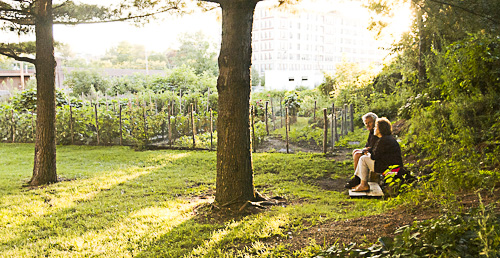
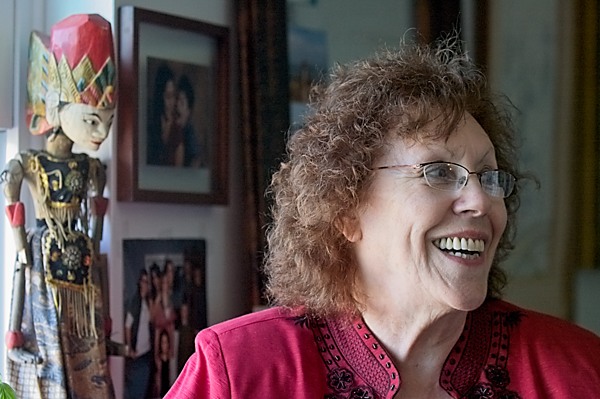
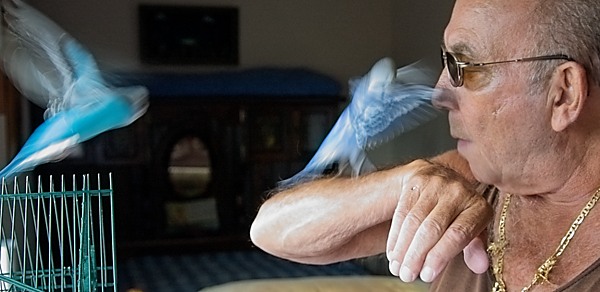

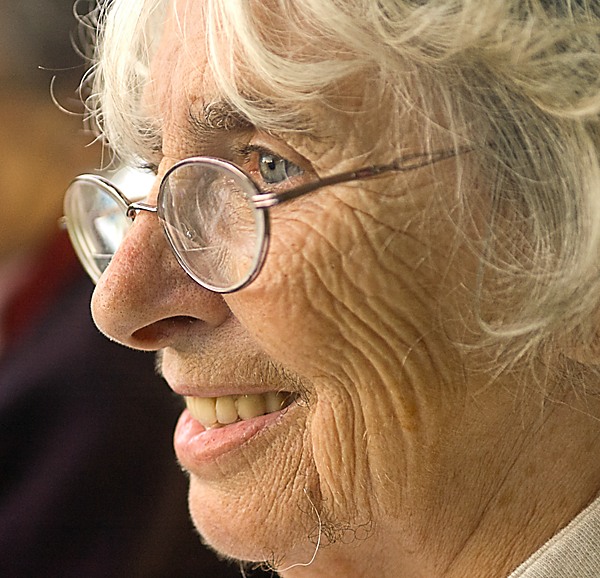

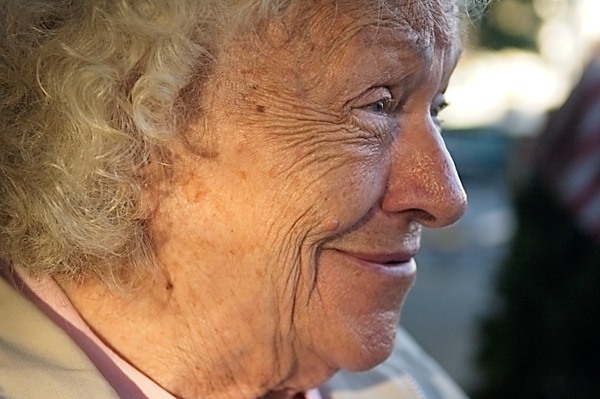
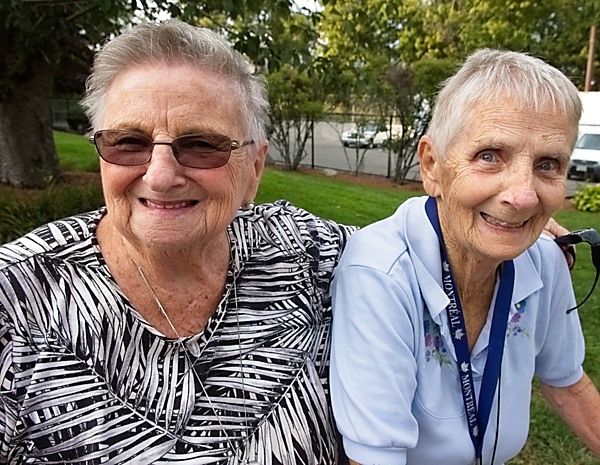

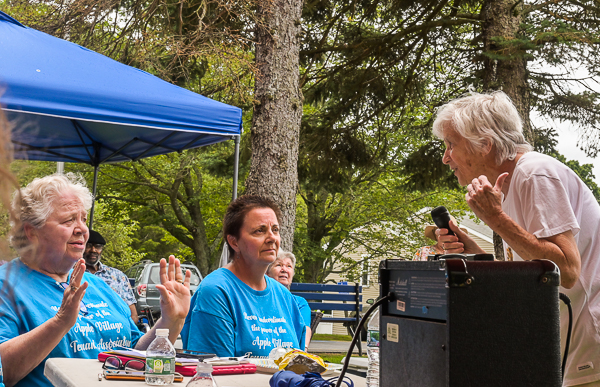
Some housing authorities are rife with bullying, mobbing, and harassment, others are not.
Prejudices are at the root of much pain and suffering in public and subsidized housing for the elderly, disabled, and others.
In public and subsidized housing for the elderly and disabled, bullying, mobbing, and harassment are inappropriate methods of social control. They can be motivated by racial or other forms of bias and hate. Similar behavior is part of mobbing and motivated by efforts to force conformity and subservience on a tenant. The targets may or may not be attacked because of their race or other identity that is legally protected. Any characteristic can be used to "justify” why someone "doesn't belong here."
“Bullying” consists of any mode of communication to hurt and demean the target or victim.
“Mobbing” consists of a group or community harassing and bullying a victim through cooperative or aggressive behavior, including in order to get them to leave their residence. Mobbing depends on the persistence of a closed administrative, social, and political system that prevents the victims from invoking their rights and legal remedies.
Example:
“The new tenant is certifiably crazy. She doesn’t belong here. Let’s do a petition to get rid of her.”
Janice Harper wrote one of the most insightful analyses of bullying and mobbing.
“...humans will almost always turn against each other when leadership signals that someone is undesirable and/or weak, vulnerable or a threat.”
"[Mobbing] affects our sense of belonging, our self-esteem or sense of self worth, our sense of control over our lives, and our sense of having a meaningful existence."—Janice Harper, PhD
Maureen Duffy and Len Sperry, experts on mobbing, assert that
“Mobbing is a much more sophisticated way of doing someone in than murder....”—Maureen Duffy and Len Sperry
Regardless of the underlying motivations—racial prejudice, or the low social status of tenants, or competition for power and control—the situation of a person who is a target of mobbing is a constant source of pain and stress.
“Hostile environment harassment” is unwelcome conduct creating a situation that makes it difficult or impossible for victims to have the peaceful enjoyment of their residency.
What makes the difference?
Some public housing provides a safe, welcoming community; in others, not so much. There are several key variables that help to account for the difference: values; competence; oversight.
-
the values, culture, and politics of the host municipality. In public housing 4 out of 5 of the commissioners of the housing authority are appointed or elected locally.
-
quality of the management. A good manager that is supported by the housing provider—the board of commissioners—can overcome and prevent bullying and mobbing.
-
is there a conscientious, take charge, board of commissioners. Where the commissioners do not hire and supervise a good manager, there is no effective intervention and no accountability for the commissioners.
-
Are the commissioners responsive to local civic leadership, and is that leadership supportive of tenant rights and respect?
-
a well-run tenant organization
Rising Creek
Following a change in the composition of the housing authority board, a new manager was appointed. Practically overnight the bullying, harassing, and mobbing ended.
Competing values
There are two values that compete.
-
One value is that people in public housing are not deserving of respect.
-
A competing value is that society has an obligation to care for the weak, including the elderly and the disabled, and that they are entitled to respect as well as housing.
As we observe in housing developments like Rising Creek in Bethlehem, the local community in which each it is embedded can exhibit a variety of responses based on different values, values that can co-exist within each person or social group.
These two beliefs about tenants and other marginalized people have deep roots in our culture, and play out in national and local political life. The balance between them changes, in part due to the actions of individuals joining together in advocacy, in large part due to local, state, and national politics.
In Bethlehem, advocacy was finally able to go beyond that closed system of housing and reach the wider community to invoke the values of dignity, respect, and mutual responsibility that are deeply rooted in New England and in Bethlehem. The positive changes at Rising Creek, including the choice of the new manager, came from the same town that had condoned the mobbing.
The Salem Public Housing Authority

Where the other commissioners had been willing to accept the dominance of the executive director, Miranda sought to introduce accountability and allow a voice for tenants; and the strong support of the public was critical to a resolution. Now Chair Miranda, the commissioners, and the executive director along with all the other actors have the chance to establish an appropriate power balance.
Solutions
Legislation and funding can provide guidance, best practices, and resources to enable housing providers to do a better job. In addition, we need oversight and accountability to protect tenants from bad management when the housing authority commissioners fail to prevent hostile environment harassment. We support the creation of the office of the tenant advocate in the Office of the Attorney General.
All of us, together, must work together to use education and advocacy to support mutual respect. The problems in housing are a reflection of community values. You can be proud of the work done by the anti-hate, anti-bias task force.
I hope you will have ideas about how to improve life in public and subsidized housing, and how we find the keys to overcoming conflict and prejudice in our villages, towns, and cities.
Thank you for what you do.
Resources
Janice Harper, PhD, Bullying and Mobbing in Group Settings; a statement presented to the Massachusetts Commission on Bullying, 7 August 2017. http://stopbullyingcoalition.org/harper-mobbing
“Office of the Attorney General Advisory: The failure of management and the landlord to assure peaceful enjoyment for all tenants is unlawful, according to the Attorney General of the Commonwealth of Massachusetts.” tinyurl.com/2e4fspb4
FR–5248–F–02 Quid Pro Quo and Hostile Environment Harassment and Liability for Discriminatory Housing Practices Under the Fair Housing Act, Final Rule published in the Federal Register on September 14, 2016, CFR Citation: 24 CFR 100, p. 63075 tinyurl.com/y4vkvhs9 “A Rule by the Housing and Urban Development Department”
Molly Rockett, Private Property Managers, Unchecked: The Failures of Federal Compliance Oversight in Project-Based Section 8 Housing, 134 Harv. L. Rev. F. 286 March 2021 https://harvardlawreview.org/forum/vol-134/private-property-managers-un…
Duffy, Maureen and Len Sperry, Mobbing: Causes, Consequences, and Solutions, (New York: Oxford University Press, 2012).
Duffy, Maureen and Len Sperry, Overcoming Mobbing: A Recovery Guide for Workplace Aggression and Bullying, (New York:Oxford University Press, 2013).
Office of the Tenant Advocate A bill presented by Senator Joan Lovely and Representative Sally Kerans and others; H1814, is modeled on the carefully drafted Fair Housing Law rule on hostile environment harassment. H1814 provides protection for all tenants in multifamily subsidized and public housing without limitation to members of a protected class.
Halberstadt, Jerry, Sticks, Stones, Gossip & Governance Part 1 of 2
Halberstadt, Jerry, Sticks, Stones, Gossip & Governance Part 2 of 2
Halberstadt, Jerry, Bullying & Democracy At Apple Village
Halberstadt, Jerry, Community Norms and Governance of Housing, 2020
Jerry Halberstadt and Marvin So, Statewide Survey on Bullying of Tenants in Public and Subsidized Multifamily Housing: Report of the Committee for Research on Conditions and Prevalence of the Commission on Bullying.
Resources for Margaret M. Gullette
Margaret M. Gullette, American Eldercide
Margaret M. Gullette, Ending Ageism, or How Not to Shoot Old People
Ashton Applewhite, This chair rocks: a manifesto against ageism
Louise Aronson Elderhood: redefining aging, transforming medicine, reimagining life
Tracey Gendron Ageism unmasked: exploring age bias and how to end it
T. M. Kitwood. Dementia Reconsidered: The Person Comes First. https://www.google.com/books/edition/Dementia_Reconsidered/BxxsAAAAMAAJ?hl=en
Dr. Robert Butler, Why survive?: being old in America
Harry Moody Aging Concepts and Controversies (9th ed.)
Nancy Mairs, Waist-high in the world: a life among the nondisabled
Liat Ayalon, Contemporary Perspectives on Ageism
Tomas R. Cole, The journey of life: a cultural history of aging in America
Thomas R. Cole, Ruth E. Ray, and Robert Kastenbaum, ed. A guide to humanistic studies in aging: what does it mean to grow old?
Help, a feature film about UK nursing facility care in COVID https://www.imdb.com/title/tt13649036/
NOTE: The reference to H3868 has been updated to the current bill number, S1007 on June 5, 2025. The bills are identical in wording.

COMMENT